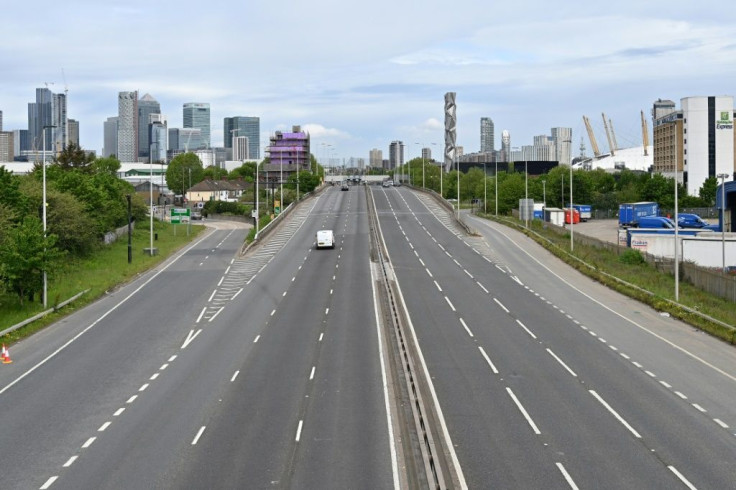UK Says Virus Lockdown To Be Lifted Gradually
The British government on Sunday said the easing of coronavirus lockdown measures was likely to be gradual, as it announced a further rise in the overall death toll.
Prime Minister Boris Johnson was expected to unveil the government's plans in coming days, after announcing the country had passed the peak of the virus.
According to the latest figures, 28,446 people have now died after testing positive for COVID-19, up 315 on Saturday, keeping it just below Europe's worst-affected country, Italy.
The number of positive cases rose by 4,339 to 186,599.
Johnson himself contracted COVID-19 and spent three nights in intensive care. He revealed in a newspaper interview that plans were even put in place in case he died.
"It was a tough old moment, I won't deny it," he told The Sun on Sunday. "They had a strategy to deal with a 'death of Stalin'-type scenario," he added.
Senior minister Michael Gove said there would likely be "some degree of constraint" once restrictions were eased until a vaccine was found.
And he told a daily briefing of the government's response to the global pandemic there would be no immediate return to the "old normal".
Weekend newspaper reports said primary schools could reopen in early June while commuters taking public transport could face temperature checks.
A quarantine period for people travelling to Britain has also been suggested. Transport minister Grant Shapps said it was a "serious point under consideration".

Britain is banking on an enhanced testing regime and contact tracing, including via a smartphone app, to monitor transmission rates and prevent a second wave of infection.
The app, developed by the digital arm of the state-run National Health Service (NHS), is to be trialled from next week on the Isle of Wight, off England's south coast.
Gove said he hoped as many of the 80,000 households on the island as possible would download the app, which he said was "one arrow in the quiver" of measures to keep infection down.
On lifting the lockdown, he added: "A phased approach is one which allows us to monitor the impact that those changes are having on public health and if necessary in a specific and localised way.
"That means we can pause or even reintroduce those restrictions that might be required in order to deal with localised outbreaks of the disease."
Britain ordered all non-essential shops and services to close on March 23, telling people to stay at home except to shop for groceries and medicines, and to exercise once a day.
The Bank of England has warned the measures, which were extended on April 16, could lead to the worst recession in centuries.
But an Opinium poll for the weekly Observer newspaper indicated widespread public support for continuing the restrictions.
Fewer than one in five believed it was the right time to consider reopening schools, restaurants, pubs and sports stadiums.
Concerns have been expressed about how to maintain social distancing guidelines by young children, and also over-crowding on public transport.
Johnson has said the use of face masks could be "useful" as the country re-opens.
Cross-Channel train operator Eurostar on Saturday said face masks covering the mouth and nose would be compulsory on services between London, Paris and Brussels from Monday.
© Copyright AFP 2024. All rights reserved.





















